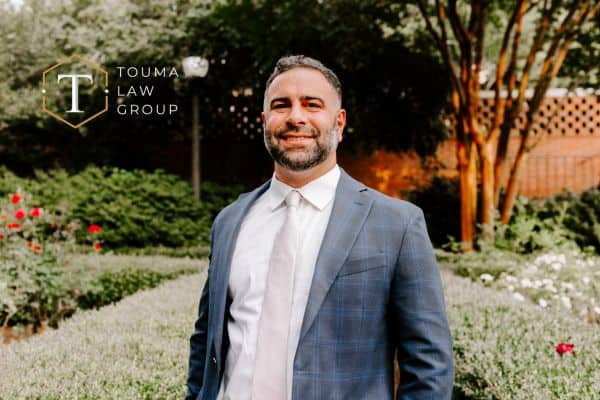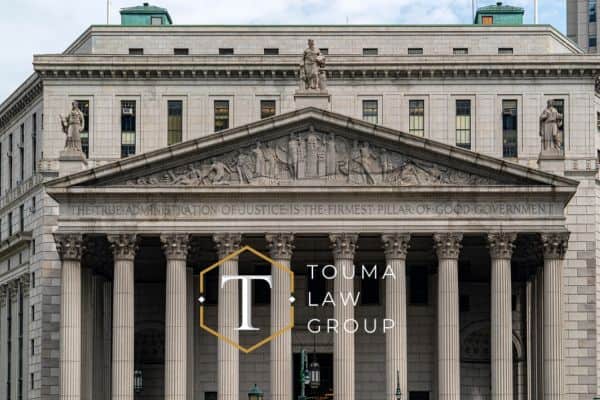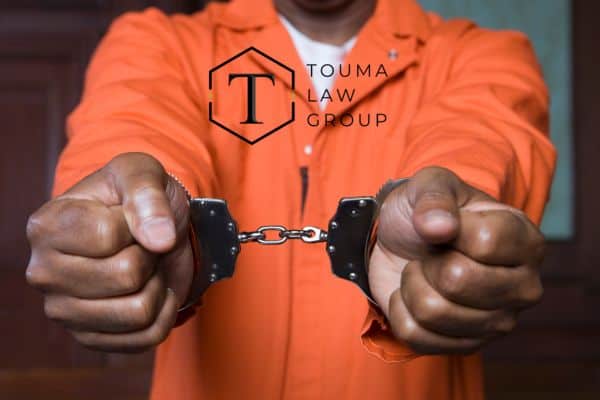If you or someone close to you has been arrested, you likely have many questions, such as: What are the steps involved in a criminal trial? What is the duration of a criminal investigation? Do I have the right to receive a fair and speedy trial? What are the trial proceedings in South Carolina?
Understanding what to expect in the criminal court process, in both District and Superior Court, is essential to winning your case. Our defense attorneys can let you know what to expect from the court process for your charges, potential outcomes for it, and possible defense strategies we can bring. Call our office at (864) 618-2323 to schedule a free consultation and get started.
How a Criminal Case Begins in Greenville, SC
In Greenville, a criminal case begins when you are arrested and the police file formal charges against you. The police report describes the events that led to your arrest, and it includes witness statements, any physical evidence, and other relevant information concerning the case. As soon as you are arrested and the criminal case begins, you can have a lawyer represent you to help you in the criminal court process. It is important to have legal representation because law enforcement agencies will give your lawyer a copy of the arrest report, but they will deny you access.

Once you are arrested, you will be reviewed by a judge who will determine the conditions of bail. If you’re released from custody, you’ll need to sign a formal agreement that states that you will appear in court as required and you may be asked to pay a bond.
It is possible that the prosecutor may not file charges. However, if they do file charges against you, the prosecutor will decide whether you will receive a misdemeanor or felony charge. The prosecutor can decide to file the same charges as stated in the arrest report, fewer charges, or even more charges than what was initially reported against you.
You should speak to a lawyer to determine the exact deadline for arraignment as it is dependent upon when you were arrested. However, prosecutors usually have 48 hours after the defendant’s arrest to file charges, as defendants have the right to a speedy trial when they are in custody (jail). The 48 hours does not include weekends, court holidays, or days when the court is closed.
The Purpose of Arraignment
An initial arraignment is the first stage in the criminal justice process. This is your first formal court appearance when you will find out the formal charges against you. The purpose of an arraignment is for the judge to verify your identity and make sure you understand what crimes you are being charged for. The judge will also ask you what your type of plea to the charge is – guilty, not guilty, or no contest.
If you choose to hire a lawyer, you will appear with him or her on the day of your court hearing. This first appearance in court will be quite brief and occur as fast as possible after the arrest.

Most commonly, defendants plead not guilty at the initial court appearance because a Guilty Plea will move the case straight to sentencing. If the plea is "not guilty" at the arraignment, the judge will set a date for your next hearing and pretrial conference, and decide if you should be released on bail. By posting bail, you’ll be released from jail and will have the opportunity to remain at home until your trial, the amount of money set for your pretrial release is determined by a judge.
The Length of the First Court Date
In South Carolina, your first court date will take place within 45 days of your arrest. The judge will ask you some basic questions and set a timeline for the case. The purpose of the first court appearance is to verify that you will appear in the pretrial process, all trial proceedings and that you have access to a lawyer. If you fail to show up to your initial court hearing, the judge will issue an arrest warrant.
What Happens in a Misdemeanor Court Case?
Misdemeanors are less serious criminal offenses and usually carry shorter sentences in jail. In South Carolina, misdemeanors can lead to a jail sentence of up to three years. When you are charged with a misdemeanor, your case will only be heard in the District Court. When a misdemeanor case goes to court, the criminal proceedings involve a pre-trial, trial, and verdict process.
At your initial hearing or arraignment, you are allowed to have a lawyer to represent you. During this court hearing, the criminal offenses charged against you will be read and you must enter a plea of guilty, not guilty, or no contest. Then you will enter pre-trial procedures with your lawyer. He or she will analyze your case and build an adequate defense for you.
Depending on the circumstances of your case, either the prosecutor or your lawyer can file pre-trial motions and your lawyer may attempt to negotiate with the prosecutor in order to reach a plea bargain. The terms of the plea bargain depend greatly on the circumstances of the crime, your criminal history, and the strength of the evidence against you. If you do not enter a plea agreement, you will continue with the criminal process and go to trial.
Following the trial proceedings, you will hear the verdict and the judge will declare the terms of your sentence. Your lawyer can use this last hearing to argue for you to get the least amount of penalties possible and a decreased sentence in jail.
What Can You Expect in Court Proceedings When You Are Charged With a Felony?
If you’re charged with a felony, your criminal justice process will be complex and require additional court hearings. Felony trials begin in District Court and are then moved to Superior Court for further hearings.
At the District Court level, you will attend your first hearing or arraignment, and the judge will read the alleged criminal charges against you and explain the maximum sentence for those criminal offenses. At this hearing, you have a right to have a lawyer with you.
Next, you will enter a preliminary discovery period where your attorney will review the evidence against you and will begin to prepare your defense. Then, you will have pre-trial negotiations, or plea bargaining, in which your attorney may negotiate with the prosecutor to try to get the charges dismissed or agree to a plea deal.
If an agreement is not reached, you will move on to a preliminary hearing where the prosecutor will present evidence to demonstrate that there is reasonable suspicion of a crime. Your lawyer will be able to hear witnesses’ testimonies, question them through cross-examination, and assess the strength and weaknesses of the evidence and arguments that the prosecution has against you.

If the judge finds that there is enough evidence in the preliminary hearing, your case will proceed and will go before the Grand Jury. It is important to know that in the state of South Carolina, all persons accused of a crime have the right to a jury trial.
Once these steps have been completed at the District Court level, the case will move on to Superior Court and you will be scheduled with future court dates. In Superior Court, you will attend the arraignment hearing and then move into an additional period of discovery and investigation called the Motions and Settlement Conferences. At this stage, your lawyer may present a pretrial motion to have certain physical evidence excluded from the trial if, for example, the police illegally obtained it. Moreover, your lawyer may continue negotiating the settlement of your case at this stage.
If a plea agreement has not been reached and your case has not been dismissed by the judge, it will be taken to the trial phase in front of a jury or a judge. However, you and your lawyer may still be able to negotiate a plea agreement even up until the time of the actual trial. Otherwise, the trial judge or jury will decide if you are guilty in the trial proceedings.
Unless the charges are dropped, you must attend a sentencing hearing in front of a judge who will announce the verdict process and the length of your sentence in jail. Even if you receive a Guilty Verdict, your lawyer can fight to get you the lightest possible penalties. An attorney can also help you file an appeal after the sentencing.
Contact Touma Law Group Today!
Understanding what will happen in the trial process and why your attorney is taking certain steps in your case is important to take the mystery out of a criminal court process and enable you to make informed decisions on how you should proceed. For a free consultation, contact the criminal defense attorneys at our law firm, Touma Law Group.
Call (864) 618-2323 today for an appointment to discuss the criminal court process, ask questions, and get legal advice from a criminal defense lawyer today. Adam Touma, our attorney, is committed to making the legal process as efficient as possible for his clients!



